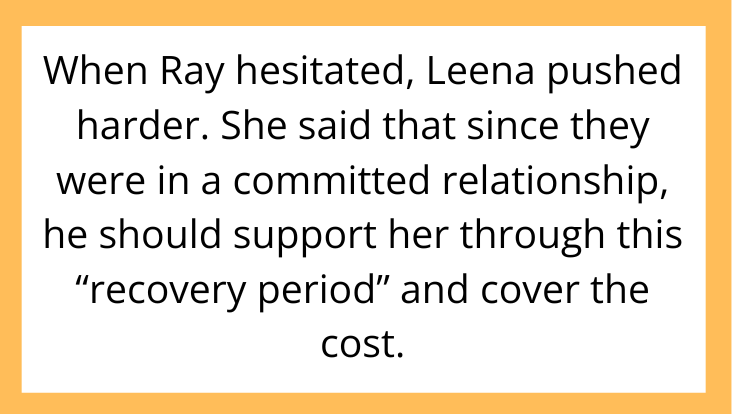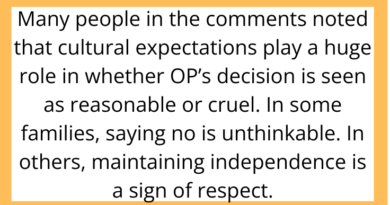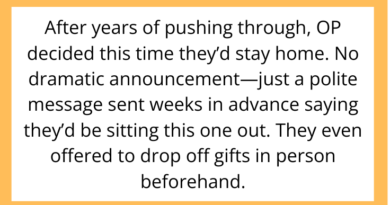AITAH for Not Paying for My Girlfriend’s Dream Vacation After She Quit Her Job Without Telling Me?
Vacations are supposed to be a time for rest, adventure, and bonding. But what happens when one person in a relationship ends up footing the entire bill—and the other decides to take a break from life without a heads-up?
In today’s AITAH story, we dive into the fallout between a couple whose financial mismatch turned a dream trip into a relationship nightmare.
The Setup: A Long-Awaited Trip

A 28-year-old man—let’s call him Ray—shared his situation on Reddit’s r/AITAH, looking for insight. Ray had been planning a romantic trip to Greece with his girlfriend of two years, Leena, for nearly six months. The two agreed early on that each would pay their share—flights, hotel, food, and activities.
Ray, an engineer, and Leena, a graphic designer, both earned steady incomes. Or so Ray thought.
Two weeks before the trip, Leena dropped a bombshell: she had quit her job.
No warning. No discussion. Just a casual mention over dinner that she was “burned out” and “needed a break from work and stress.”
Ray was stunned—but supportive at first.
Until Leena told him she still wanted to go on the trip—and expected him to pay for everything.
The Conflict: “You’re My Partner, You Should Understand”

When Ray hesitated, Leena pushed harder. She said that since they were in a committed relationship, he should support her through this “recovery period” and cover the cost.
She argued that the trip would be good for her mental health and that refusing to pay was “selfish and transactional.”
Ray, however, didn’t see it that way.
To him, the agreement was clear: both would pay. He had budgeted carefully, and covering double the expenses—on short notice—wasn’t something he could easily absorb.
He offered to reschedule the trip or scale it down significantly, but Leena wasn’t interested.
She accused him of “valuing money over love” and said she was “disappointed” in how he responded during a moment when she needed him most.
So Ray turned to Reddit and asked: AITAH for refusing to pay for my girlfriend’s vacation after she quit her job without telling me?
Financial Honesty in Relationships: Where’s the Line?

Ray’s Side: Boundaries, Not Stinginess
Ray’s situation isn’t uncommon. Financial boundaries in relationships can be tough to manage—especially when one partner makes a major life change without communication.
From Ray’s point of view:
-
He wasn’t consulted about Leena quitting her job.
-
Their travel agreement was mutual and fair.
-
He wasn’t refusing to help—he just wasn’t prepared to double the trip’s cost overnight.
In a healthy partnership, big financial decisions (like quitting a job) usually involve some level of discussion. The sudden expectation that he should fund a luxury trip added pressure he didn’t sign up for.
Leena’s Side: Support in Tough Times
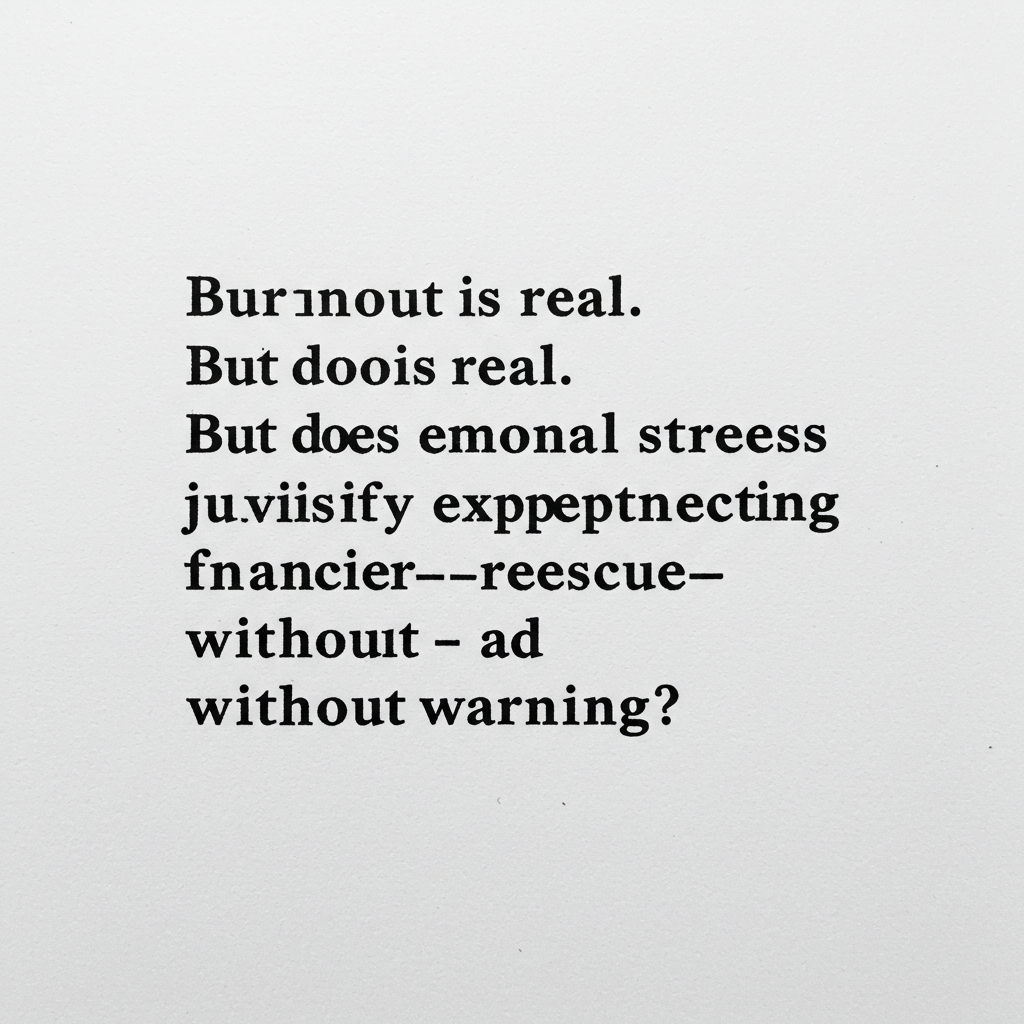
On the other hand, Leena may have been genuinely overwhelmed. Burnout is real, and if she felt trapped or unsupported in her job, quitting might have been her only way out.
From her view:
-
A partner should be emotionally (and sometimes financially) supportive during low points.
-
The vacation had been planned, and canceling it might worsen her mental state.
-
She may have hoped Ray would see this as an opportunity to show care and understanding.
But expecting financial support without prior communication or planning isn’t a great foundation for trust.
Reddit’s Verdict: Mostly Not the Villain

Commenters on the thread overwhelmingly sided with Ray.
“Refusing to pay for a luxury vacation doesn’t make you heartless,” one top comment read. “It makes you financially responsible.”
Others noted that Leena’s move to quit without a conversation showed poor communication—and her expectation afterward was a red flag.
But a few users urged compassion.
“If she’s really struggling, this could be a deeper issue than the trip. Maybe there’s something more going on emotionally.”
Even so, most agreed: Leena’s needs don’t entitle her to Ray’s wallet—especially when the financial strain and lack of communication were clear.
The Bigger Issue: Expectations vs. Entitlement

This story isn’t just about a vacation. It’s about communication, respect, and mutual responsibility in a relationship.
Healthy Relationships Require:
-
Transparency: Big life decisions should be shared—not revealed casually after the fact.
-
Mutual Support: Financial support is okay—when agreed upon by both sides.
-
Boundaries: Saying “no” to financial pressure isn’t a sign of love failing; it’s often a sign of self-respect.
Ray didn’t refuse to help out of spite—he refused because he was blindsided. That’s a big distinction.
What Could They Have Done Differently?
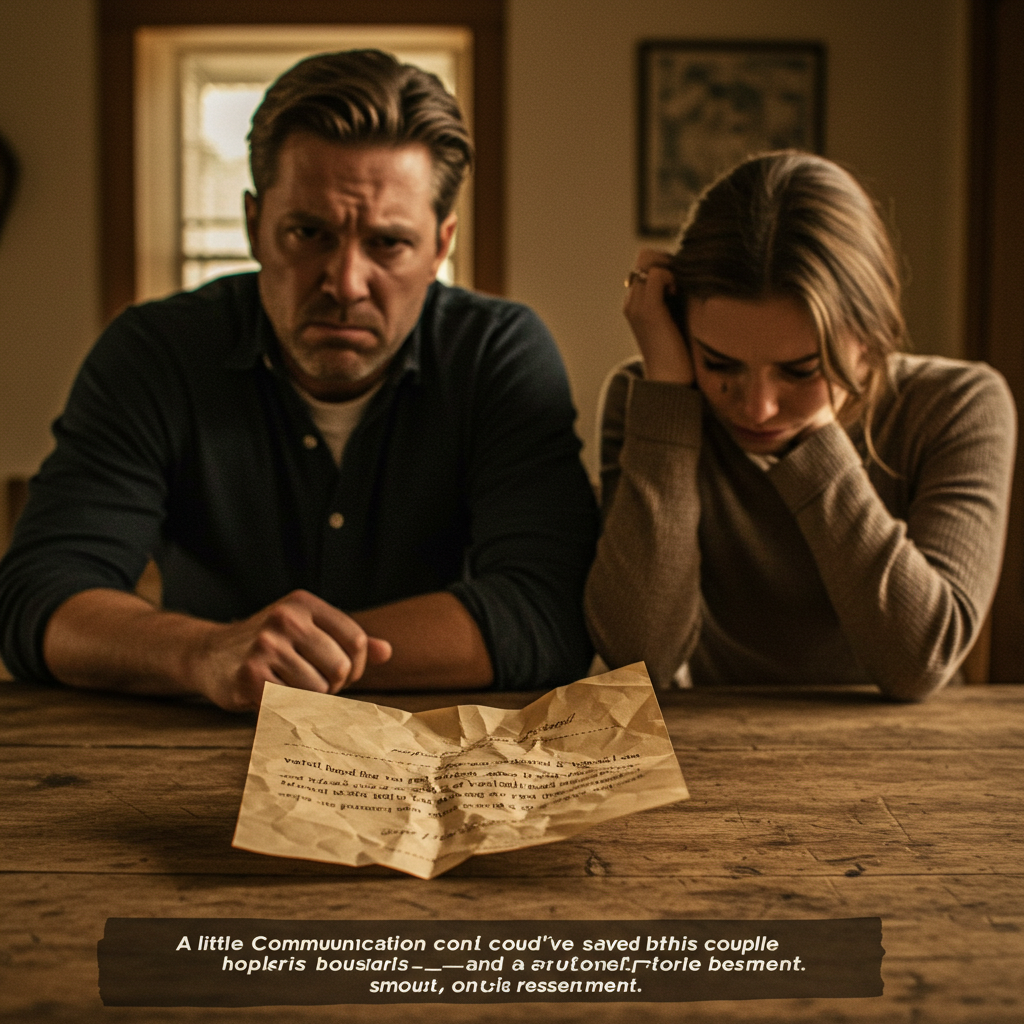
Ray:
-
Could’ve had a deeper conversation with Leena about her emotional state before reacting to the financial ask.
-
Might have offered a scaled-back version of support—like paying for a weekend getaway or offering to postpone.
Leena:
-
Should’ve communicated before quitting her job.
-
Needed to understand that emotional distress doesn’t override pre-agreed financial commitments.
-
Could’ve compromised instead of giving ultimatums.
Final Thoughts: Love Isn’t a Blank Check

Romantic relationships are partnerships—but they’re not unconditional bank accounts.
Supporting your partner emotionally and financially is important—but so is mutual respect and honest communication. When one person makes a major decision and expects the other to simply adjust, it can breed resentment, not trust.
Ray wasn’t the villain for saying no. He was drawing a line between compassion and being taken advantage of—and in today’s world, that’s more necessary than ever.
